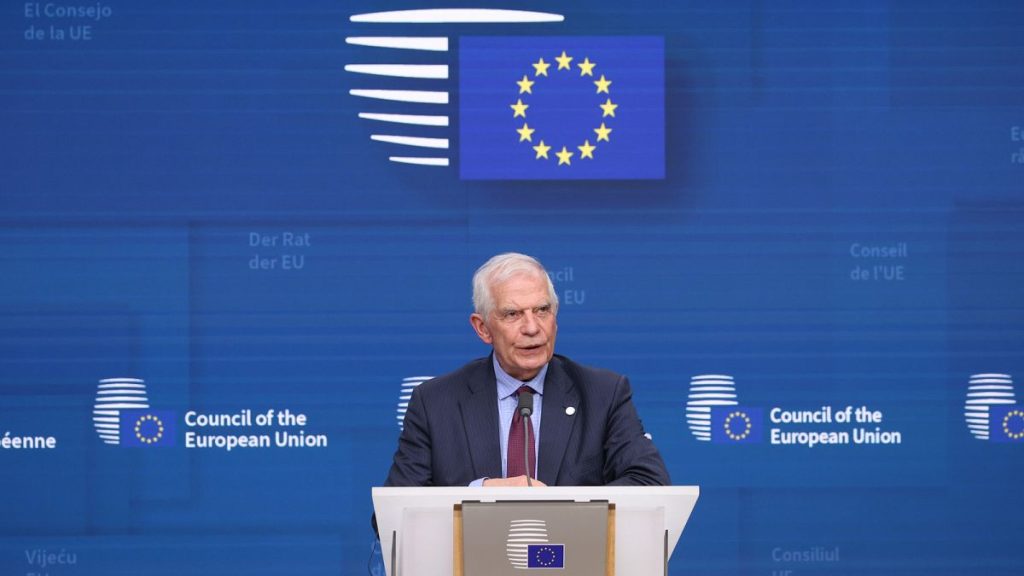The European Union is considering imposing heavier sanctions on Iran in response to an aerial attack on Israel. The EU foreign ministers held a virtual meeting where they discussed the possibility of expanding existing sanctions against Iranian drone technology and including missiles as well as covering Iran’s proxies in the region. There is also a proposal to list the Iranian Revolutionary Guard as a terrorist organization, although this could be a challenging step as the military branch has not been associated with terrorism in any EU member states. The goal is to prevent further escalation in the Middle East and maintain Israel’s security while urging caution from all parties involved to avoid an all-out war.
The EU already has sanctions in place against Iran for various reasons, including human rights violations and the export of critical components used to manufacture drones that are sold to bolster Moscow’s war efforts in Ukraine. The recent attack on Israel by Iran using drones and missiles led to discussions about expanding the sanctions in two directions: including missiles in addition to drones, and considering Iran’s proxies in neighboring countries. The attack was in response to Israel’s airstrike on an Iranian diplomatic building in Damascus, which was also condemned by the EU.
Israel’s foreign minister has urged Western counterparts, including EU foreign ministers, to impose broader sanctions on Iran’s missile program and list the Iranian Revolutionary Guard as a terrorist organization. While the EU is considering these measures, listing the Revolutionary Guard as a terrorist organization would require evidence of terrorist activities related to a national authority. There is also the option of reimposing sanctions against Iran for its nuclear activities under the 2015 Iran nuclear deal, which includes a clause allowing for a ‘snap back’ of sanctions in case of suspected violations.
However, some experts believe that additional EU sanctions may have limited impact on pressuring Iran due to its isolation from the West. Iran has already been subject to sanctions, and further restrictions may not significantly change its behavior. EU leaders are set to convene for a summit in Brussels to discuss the situation in the Middle East, where the issue of escalating tensions between Iran and Israel is expected to be a major topic of discussion. The EU is committed to preventing further conflict and ensuring stability in the region, emphasizing the importance of restraint and dialogue rather than escalating hostilities.


